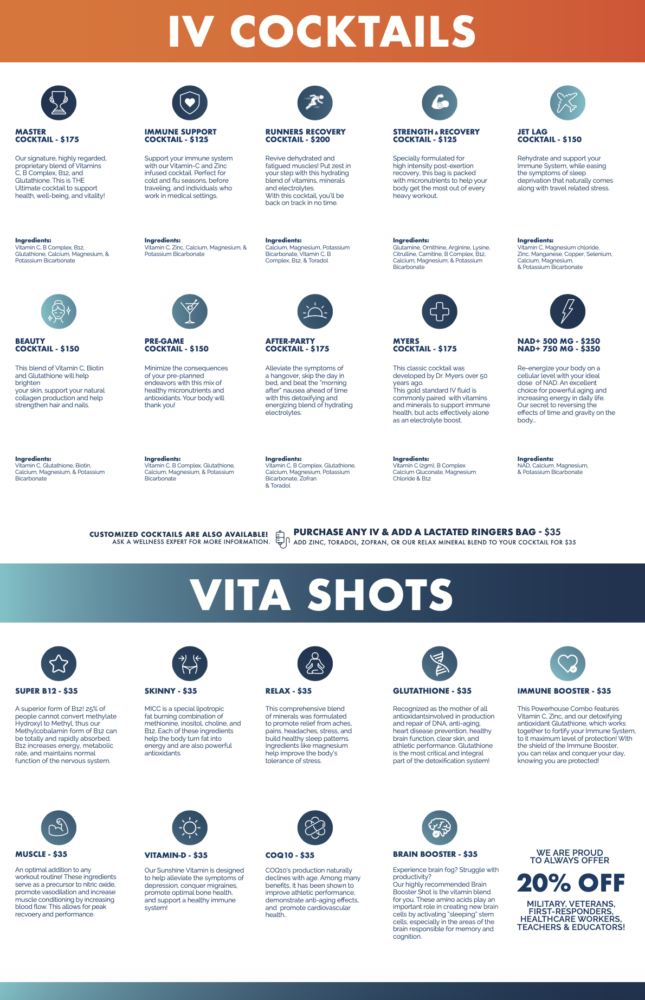What Occurs After Alcohol Ingestion?
The Basic Pharmacology of Alcohol.
Most adults can easily identify and conceptualize their personal relationship with alcohol. Common phrases in regard to alcohol use are:
“I’m sober.”
“I have a drink with dinner every night.”
“I’m a social drinker.”
“I only drink on the weekends.”
Sound familiar? Even self-aware, self-regulating, individuals often partake in the use of alcohol without a developed understanding of it’s pharmacological makeup. Our caretakers drank alcohol around us in childhood, our trusted friends use alcohol, it’s practically embedded in our culture, it makes socializing easier, it reduces tensions, and alleviates stress…. so why not?
In this article, the effects of these various levels of alcohol use, the metabolic process for which alcohol undergoes, and evidence based methods for treating hangovers are going to be discussed.
Even moderate alcohol consumption contributes to neurodegeneration.
You may be surprised to hear that even moderate alcohol use contributes to neurodegeneration. Neurodegeneration is characterized by a loss of neurons in the brain, directly impacting cognitive function. We often hear about this symptom when discussing diseases such as Parkinson’s or Alzheimer’s, but a measurable amount of neurodegeneration can also occur after substance use, specifically alcohol use. Prior to current research, it was believed that only those who drink in excess suffer from health consequences related to use.
A recent study published by Nature communications with 36,678 participants revealed that drinking alcohol was associated with a loss of brain matter, on a micro and macro scale, including those who have one alcoholic beverage per day. This applies to those who drink three drinks in one night and three another night in the same week, or those who have a beer or glass of wine with dinner every evening (1). This study revealed that although alcohol consumption negatively affects those who drink moderately, the risk of neurodegeneration does increase with increased alcohol intake.
A different study demonstrates the impact alcohol has on neurogenesis. Neurogenesis is the growth of neurons, and the brain development which naturally occurs when we participate in positive health behaviors or learn new things. When blood alcohol levels reach 0.08%, motor coordination impairment was not seen in females or males, but neurogenesis was decreased (2). This indicates that although we may not feel very impaired, our brain faces consequences we may not detect in real time. In the same study, where one alcoholic beverage was consumed per day on average, neurogenesis was reduced by 40%.
This information is not shared to instill worry, but rather to assist others in making informed decisions about alcohol use. This information is especially useful for those who are seeking ways to improve their health.
How does alcohol behave in the body?
Many psychoactive substances bind to specific receptors in the brain resulting in an altered psychological state. This is not the case with alcohol. Alcohol is ingested, converted to Ethanol in the stomach, penetrates intestinal lining, and enters the blood stream via capillaries (tiny blood vessels). From the bloodstream, Ethanol is swiftly carried to the liver. Because Ethanol is such a tiny molecule, it is capable of penetrating of every cell membrane in our body. Meaning, that every organ system is affected when alcohol is consumed.
Although Ethanol is predominantly metabolized in the liver, other organs are left to metabolize the Ethanol they come in contact with. In the liver, Ethanol is broken down into a known toxic compound called Acetaldehyde. Acetaldehyde has a short half life, but while in the body it irreparably damages DNA. The toxicity of Acetaldehyde is the culprit behind sickness when drinking. Acetaldehyde is eventually broken down into Acetate. Acetate is converted to Carbon Dioxide and water, exiting the body this way (3).
Mitigating the effects of alcohol consumption.
- Eat. When food is ingested before alcohol is ingested, blood alcohol concentration levels are shown to reduce. This is because when the stomach is full, the absorption rate of alcohol is slowed. This may contribute to a more positive psychological state, as it will soften the “peak” of an alcohol experience. Consider eating bef0re ingesting alcohol, and lessen your chance of falling ill.
- Ingest less alcohol. The safest way to use any substance, is to use less of it. This is the least practical of all mitigations, but it’s the most effective.
- Supplement. The active compounds in milk thistle, taken after a night out, have been shown to assist in the regeneration of liver cells required for the metabolic process (4). IV Lounge Greens-Fruits drink blend is packed with Milk Thistle, Vitamins, and Minerals. This is an excellent addition to the “morning after” breakfast. B-Vitamins and Folate are also associated with hangover recovery before and after a night out; which is why IV Lounge’s Pre-Game IV Drip Cocktail and After-Party IV Drip Cocktail were formulated with these ingredients in mind.
- Hydrate. IV Therapy is one of the best ways to rehydrate after dehydration. IV Therapy is fast, complete, and packed with nutrients and electrolytes unlike regular water or sports drinks.
Our team at IV Lounge wishes you healthy celebrating! Contact one of our wellness specialists at any location to receive more information about mitigating the effects of alcohol use, or how to integrate vitamin therapy into your health care regimen.
References
- Daviet, Remi et al. “Associations between alcohol consumption and gray and white matter volumes in the UK Biobank.” Nature communications vol. 13,1 1175. 4 Mar. 2022, doi:10.1038/s41467-022-28735-5
- Anderson, M L et al. “Moderate drinking? Alcohol consumption significantly decreases neurogenesis in the adult hippocampus.” Neuroscience vol. 224 (2012): 202-9. doi:10.1016/j.neuroscience.2012.08.018
- Duke University “How is alcohol eliminated from the body?” The Alcohol Pharmacology Education Partnership
- Brandon-Warner, Elizabeth et al. “Silibinin inhibits ethanol metabolism and ethanol-dependent cell proliferation in an in vitro model of hepatocellular carcinoma.” Cancer letters vol. 291,1 (2010): 120-9. doi:10.1016/j.canlet.2009.10.004







